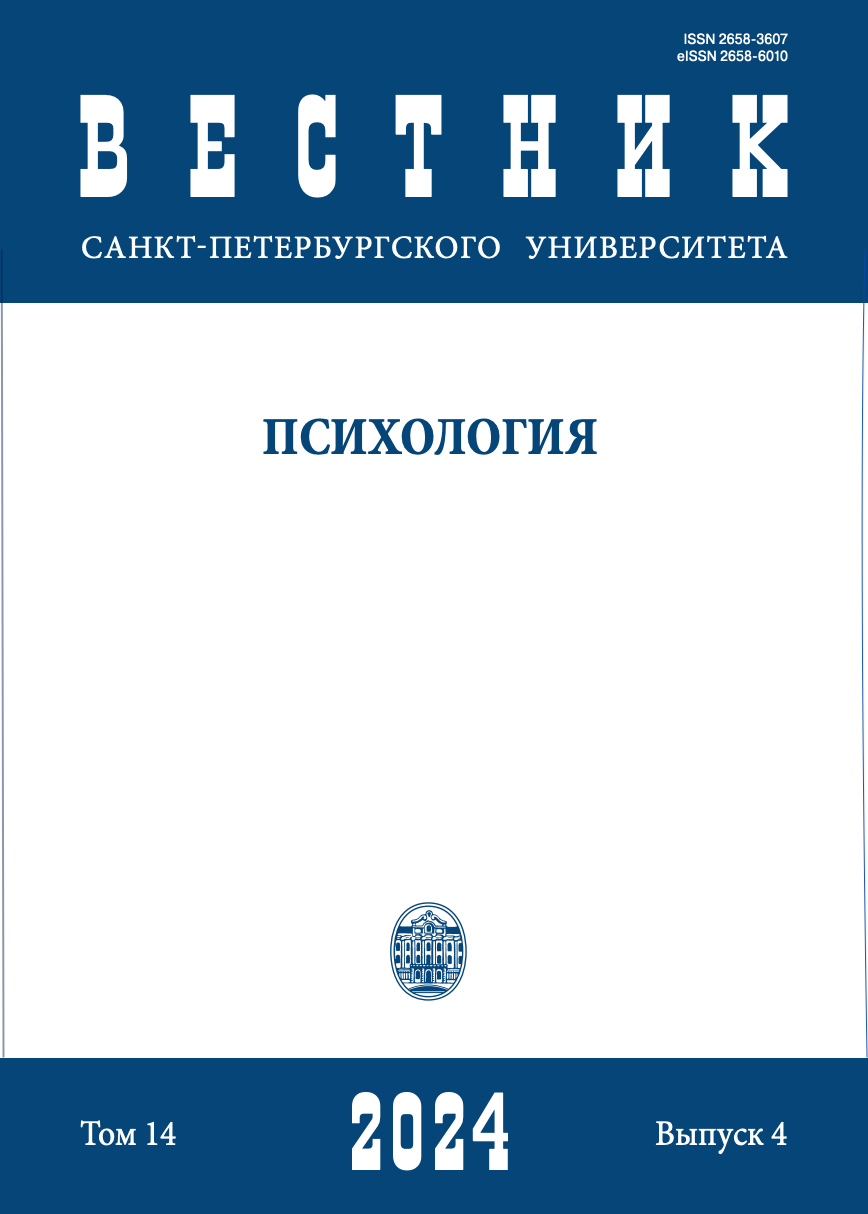Mental regulation of psychological states’ dynamics in the range of “everyday — stressful situation”
DOI:
https://doi.org/10.21638/spbu16.2024.404Abstract
The article is devoted to the study of mental structures’ role in the regulation of mental states in the dynamics of changes in the intensity of situations. The conducted research based on our conceptual model of mental states’ regulation, which based on systemic positions and concepts of self-organization. The purpose of the study is to identify the nature of the relationships between methods of self-regulation, mental structures and the effectiveness of mental states’ self-regulation in the dynamics of activity from everyday situations to stressful ones. The study carried out during three types of activities in three groups: consisting of students (34 people), athletes (35 people) and office workers (30 people), 47 men, 52 women, the average age — 23 years, 99 people. We used methods for diagnosing mental structures (reflection, self-system, life-meaning orientations), methods of self-regulation and regulatory properties, as well as mental states and the effectiveness of their regulation. The study carried out in several stages: at the first stage, mental states, effectiveness and methods of their regulation in everyday situations we diagnosed in each group, at the second stage, the same in a tense situation of activity. The mental structures of the respondents diagnosed regardless of the activity situations. As a result, found that, regardless of the specifics of the activity, the structures of mental regulation contribute to an increase in the number of positive states (concentration, joy, involvement) and a decrease in negative states (anger, anxiety, fatigue, boredom). Shown that from every day to stressful situations of activity, the number of relationships between mental structures and the effectiveness of self-regulation of states decreases, which is more typical for sports activities and to a lesser extent for educational and work activities. An increase in the number of negative states in stressful situations of activity, along with a decrease in the involvement of mental structures in the regulation of mental states, may indicate the key role of the latter in the system of state regulation.
Keywords:
mental state, self-regulation, mental structure, reflection, dynamics, tension of the situation
Downloads
References
References
Downloads
Published
How to Cite
Issue
Section
License
Articles of "Vestnik of Saint Petersburg University. Psychology" are open access distributed under the terms of the License Agreement with Saint Petersburg State University, which permits to the authors unrestricted distribution and self-archiving free of charge.




